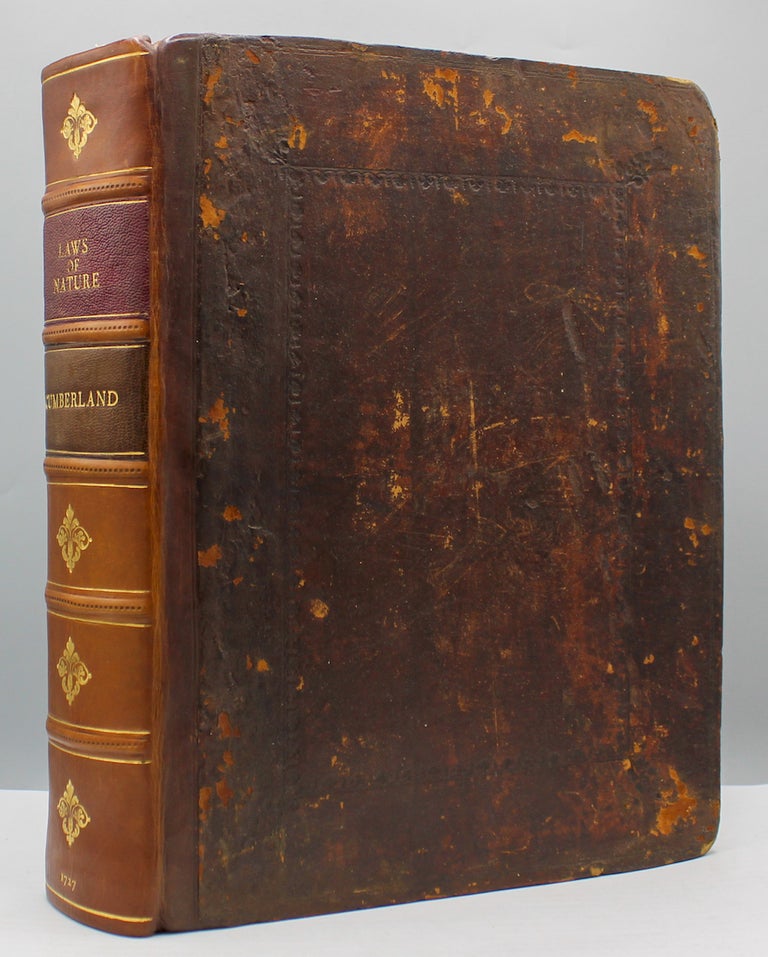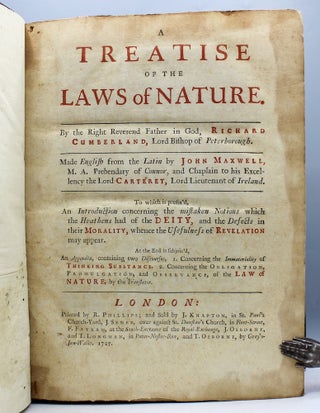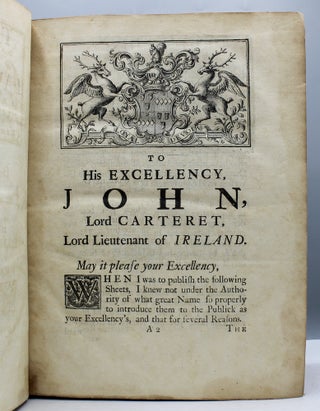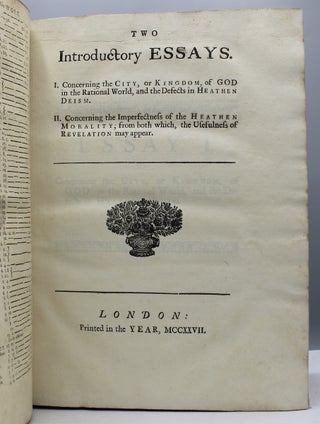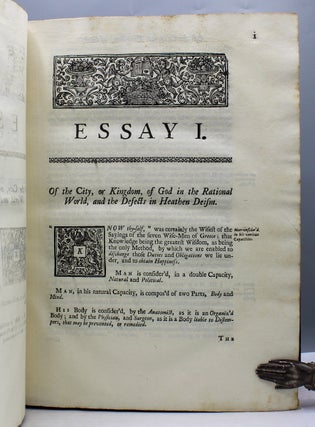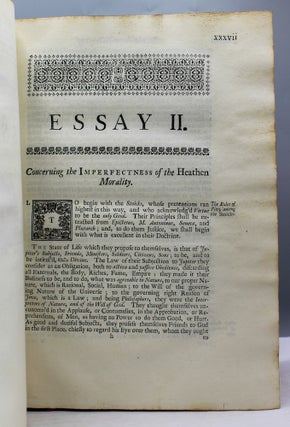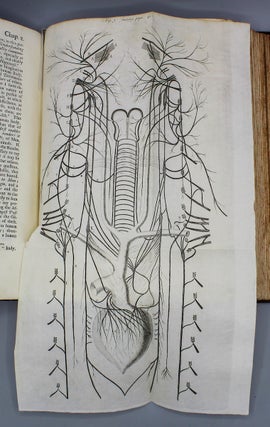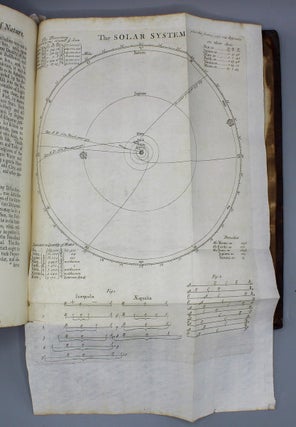A Treatise of the Laws of Nature…To which is prefix’d, An Introduction concerning the mistaken Notions which Heathens had of the Deity
London: R, Phillips, 1727. First English edition of Cumberland’s most remarkable book, which was originally published in Latin in 1672. With two engraved folding plates and a copper-engraved armorial headpiece. With list of subscribers. Main title printed in black and red. Title with browning around the edges (offsetting from the leather binding), nineteenth-century bookplate of the Berkeley Divinity School, old ink annotation on front pastedown. A very good, clean copy. Contemporary paneled calf, rebacked in modern calf. Gilt spine with burgundy and brown morocco labels, edges sprinkled red. Four parts in one, quarto. [28], clxviii, [2], 377, [1, blank], 167, [1, blank], [24], xxvii [index] pp. Item #15995
Cumberland (1631-1718), who studied medicine for a while before taking orders, was a friend and classmate of Samuel Pepys at Magdalen College, Cambridge. The present work grew out of the author’s opposition to Hobbes’s theory of the nature of man, the nature of morality and the origin of society. Cumberland’s ethical theory is summed up in his “principle of Universal Benevolence” as the one source for moral good. In this sense he may be regarded as the founder of English utilitarianism, but it is a utilitarianism distinctive from the “selfish system.” Sir Isaac Newton’s name is among the list of subscribers for this book.
Price: $1,500.00



